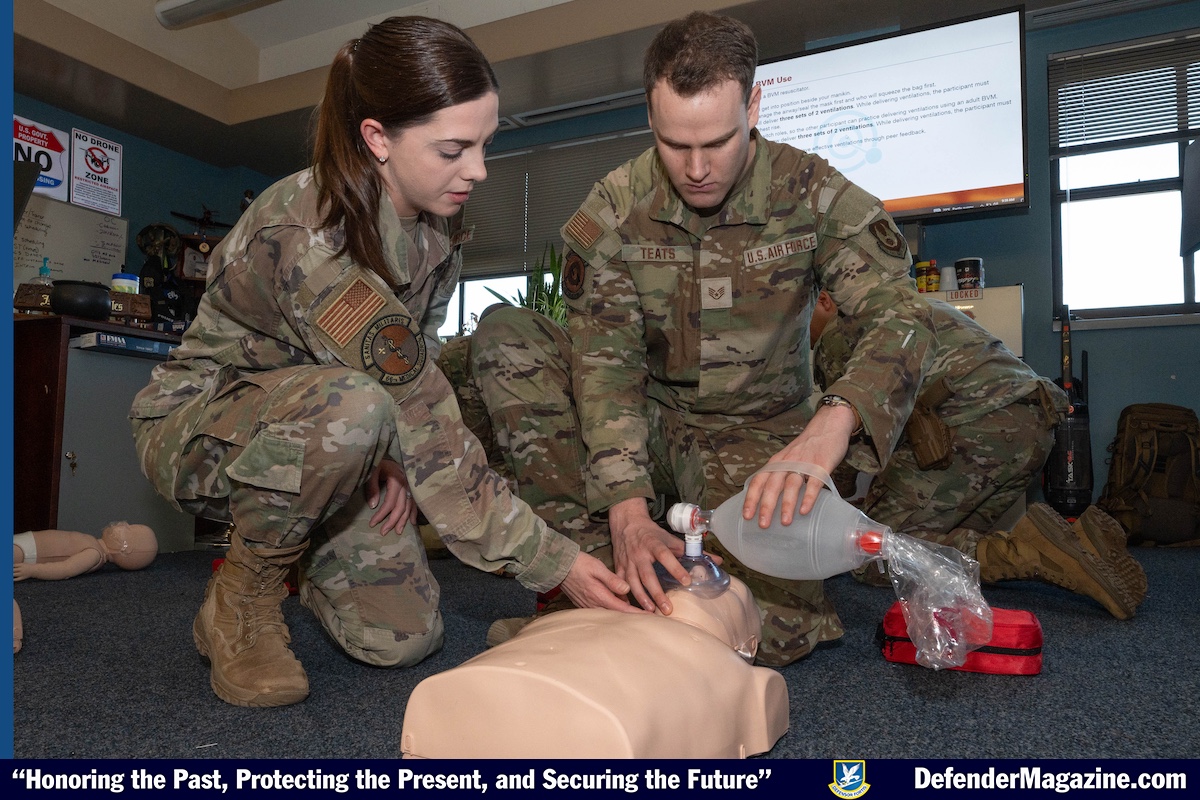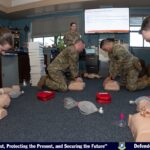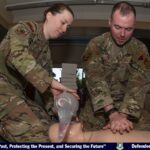
The training, led by the 66th Medical Squadron, introduced fundamental BLS skills to the first responders – equipping them with the techniques necessary to respond to breathing and cardiac emergencies in adults, children and infants.
“I’m passionate about BLS because it equips individuals with the skills to manage life-threatening emergencies like cardiac arrest and respiratory distress until advanced medical help arrives,” said Staff Sgt. Kayla War, 66 MDS medical technician and BLS instructor.
Participants learned key lifesaving measures like proper CPR techniques, how to use an automated external defibrillator to restore normal heart rhythm during cardiac arrest, and how to clear obstructions in choking victims.
“Practicing and training together now helps us reduce errors and improve our communication during real-world situations.” said Staff Sgt. Katelyn Winther, 66 SFS non-commissioned officer in charge of installation access and class participant. “Those precious seconds count. Having another trained responder there helps ensure we’re providing the best care we can.”
The course also highlighted the importance of effective teamwork and communication while providing BLS. Responders are trained to assign specific roles to minimize confusion and errors during an emergency.
“High-quality CPR increases the victim’s chance of survival,’’ said War. “Emergencies can happen anywhere at any time. It’s important our personnel have the knowledge and skills to confidently respond to these critical situations and save a life.’’
War also emphasized the importance of preparedness in emergency situations.
“Training and encouraging a culture of preparedness empowers individuals to take action during an emergency,” she said. “This class provides the skills, knowledge and practice needed to recognize an emergency and how to respond.”
BLS certification must be renewed every two years to maintain proficiency.

